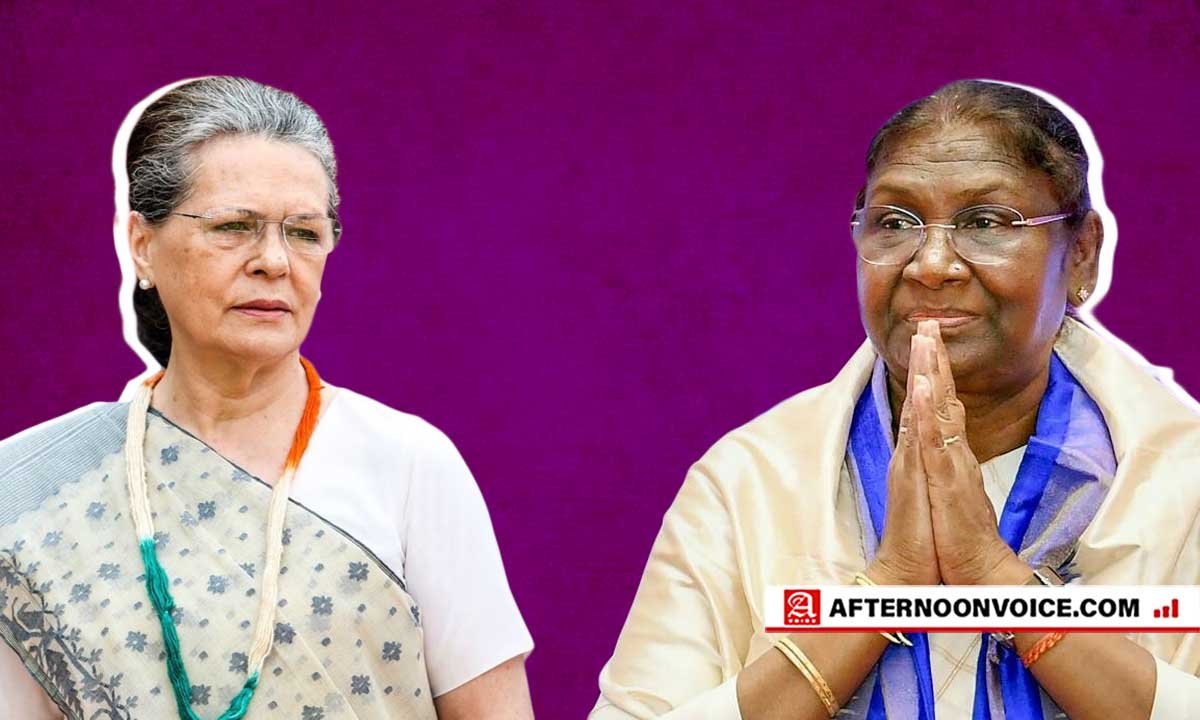
All this started with Subramanian Swamy’s alleged accusations against Congress President Sonia Gandhi and her son Rahul Gandhi. Since 2013, the Gandhi family has been on the radar for alleged corruption charges, and so far nothing has been proven against them. Sonia Gandhi’s questioning in the National Herald case today was led by Kuldeep Singh, an Assistant Director at the Enforcement Directorate, who had also questioned Rahul Gandhi.
The Associated Journals Limited (AJL) closed printing National Herald in 2008. It was left with no money and owed a debt of Rs 90 crores to Congress. The debt was a sum of interest-free loans extended by Congress to The Associated Journals Limited (AJL) from time to time so that the newspaper could pay its employees and continue its operations. The allegation here was that the Gandhis’ had no real interest in the newspaper, and they were actually eying AJL’s real assets.
In November 2010, the Gandhi family floated a company called Young Indian and bought the outstanding loan of Rs 90 crores from AICC by merely paying ₹50 lakh. The debt that The Associated Journals Limited (AJL) owed to Congress now stood transferred to Young Indian. A month later, in December 2010, The Associated Journals Limited (AJL) expanded its equity pool and allotted a large chunk of shares to Young Indian, making it a majority shareholder. Young Indians, too, had no funds. To acquire The Associated Journals Limited (AJL), it borrowed ₹1 crore from a Kolkata-based company called Dotex. Of this, ₹50 lakh was paid to Congress to purchase the Rs 90 crore debts.
In this above-mentioned issue Sonia Gandhi, 75, was questioned for nearly three hours and was allowed to leave during lunchtime. The Congress president, who had missed summons in the past citing Covid, had appeared before Enforcement Directorate. Perhaps the day was closed wrong; on the one hand, India was celebrating its new woman President Murmu, and the Congress President was called for scrutiny. Rahul Gandhi was questioned for over 40 hours across five days. But keeping the Congress president’s health in mind, the Enforcement Directorate wrapped up her questioning far sooner. There is no new summons yet.
The Enforcement Directorate claims Rahul Gandhi’s questioning took more time because his answers “did not match”. After each round of questioning, when he was asked to sign off on the typed transcript, the Congress MP “improvised some answers”, claimed sources. Rahul Gandhi and the Congress, however, accuse the agency of dragging out his questioning deliberately, to harass him.
The Enforcement Directorate says the Young Indian company also took over Rs 800 crores in assets of AJL. According to the Income Tax department, this should be considered an asset of the shareholders of Young Indian — Sonia Gandhi and Rahul Gandhi, for which they should pay tax. Congress says the assets of AJL went to Young Indian, a non-profit, and so the shareholders could not make any money from the assets since that is not allowed under the law. To, the Enforcement Directorate says the Young Indian claims to be a non-profit but has not done any charity work.
Sonia Gandhi’s questioning revolved around personal details of her shareholding and taxes and the links of Associated Journal to Young Indian, say sources. She was also asked about the links of the Congress party with the companies. Sonia boldly faced ED; she calmly answered whatever was asked of her. Her conduct was graceful. On the other hand, Murmu was very much confident about winning the presidential elections. It was the day of contrast; one woman is going to be India’s president and on the other hand, India’s national party Congress’s president was asked to appear for investigations.
Netflix documented the National Herald case; it would run to 12 seasons of 20 episodes each. The action-packed series would span almost a century, beginning in the era of India’s freedom struggle and traversing through high courts and the Supreme Court, and various government offices including that of the Enforcement Directorate (ED). It would have a parallel track covering a media trial, and a social media trial, of the protagonists, the Gandhis. Congress describes the ED probe as vendetta politics. The ruling BJP believes this is a crackdown on ‘corruption’ and accuses the Gandhis of trying to pressurise the investigating agencies and prevent them from doing their job.
In 1937, Nehru floated a company called Associated Journals Ltd (AJL) with 5,000 freedom fighters as its donors. Therefore, there was no particular owner to that company. AJL launched three newspapers — in English, Hindi and Urdu. Nehru was the international correspondent for the National Herald, the English-language newspaper that was a powerful mouthpiece of the Congress party. He continued to voice his opinions daily even after he became the Prime Minister.
His son-in-law Feroze Gandhi was the managing director of AJL between 1946 and 1950. Nehru would have little imagined that decades later his grandson’s wife Sonia and her children Rahul and Priyanka would find themselves embroiled in criminal investigations following a case filed by their bete noire Subramanian Swamy and two others. Meanwhile, the enforcement agencies alleged that since 2008, AJL was not publishing any newspapers and was only collecting rent from its tenants, therefore it was a real estate company. This was denied by the Gandhis, who said the newspaper publication was only temporarily suspended and not closed.
The lease agreements allow renting. They gave examples of how all other newspaper companies were involved in similar practices. The probe agencies were unwilling to believe that Congress actually extended money to AJL. Rather, they said, AJL’s takeover was based on fraudulent transactions; the Rs 90 crore loan from AICC to AJL was “non-existent” and just a paper entry, they claimed.

